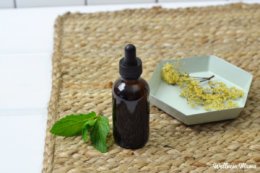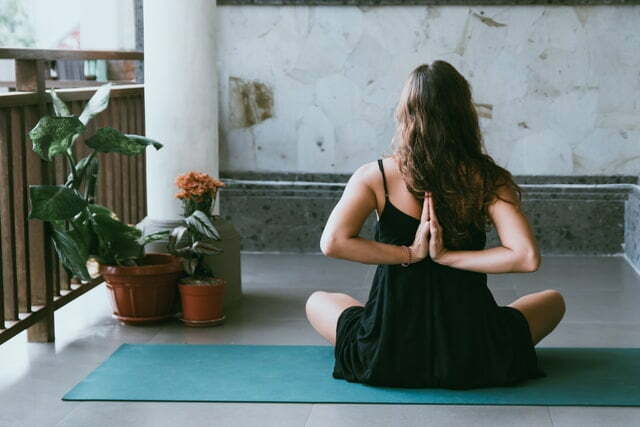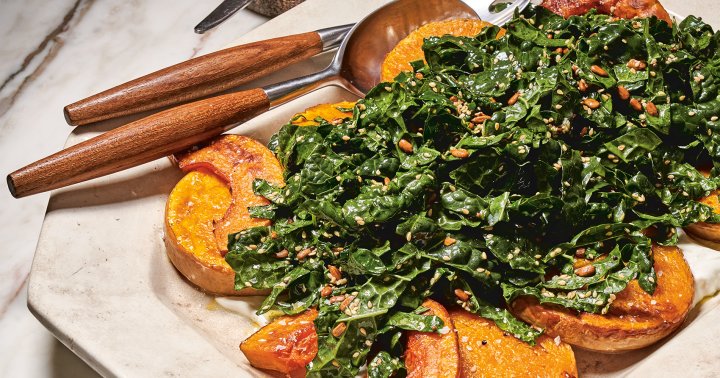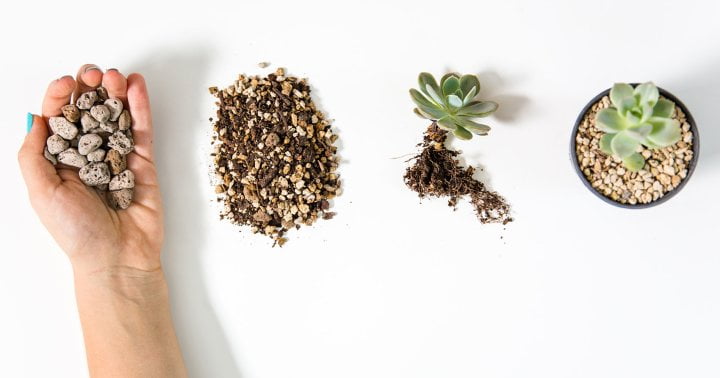Sleep Tincture Recipe (Natural and Homemade) | Wellness Mama
Table of Contents[Hide][Show]
This natural sleep tincture recipe is made with some of my favorite herbs. It’s naturally relaxing, calming, and great for a better night’s sleep. We don’t need it often, but if I’ve got a sick kiddo, or we’re traveling and schedules are crazy, this is the one I reach for.
And it doesn’t just work for kids. Adults who struggle with sleepless nights and anxious feelings can also benefit from a sleep tincture.
What Is a Sleep Tincture?
A tincture simply extracts the health benefits from herbs into a concentrated liquid form. If you’ve ever tried “sleepy time tea” and felt more relaxed and had better sleep, a tincture can work even better. Tinctures rely on alcohol to extract and preserve the beneficial components of the herb.
This is my basic tincture process. If you have an herb garden you already have a lot of the ingredients! I rely on tinctures for a wide variety of complaints, like tummy troubles, colic, teething, sore throats, or as a multivitamin. I even have one I like to use for postpartum care.
Tincture Without the Alcohol
If you want to skip the alcohol, you can make a glycerite or herbal-infused vinegar instead. These don’t have as long of a shelf life but will still last several years.
A popular strategy is to put the alcohol tincture dose in a cup of steaming hot water and allow it to evaporate some before drinking. However, this only decreases the alcohol a tiny amount and you lose the volatile oils and some other constituents in the process, according to the USDA.
Sleepy Time Herbs
Each herb in this blend has a unique role to play. Here’s what each herb does and why I chose it for my sleep tincture recipe.
Yarrow helps increase circulation in the body and has an affinity for the blood. When circulation is working optimally, the body can better deliver the nutrition it needs to different areas.
Catnip is a nervine and sedative that helps calm and relax. The active ingredient in catnip is similar to the sedatives found in valerian root. It was used as far back as medieval times as a strengthening tonic.
Chamomile is a gentle, yet powerful nervine that soothes and calms. It’s helpful for restlessness, crankiness, and anxious feelings.
Stevia is a super sweet herb, about 200 times sweeter than sugar, according to a 2019 article in the journal PNAS. We’re using it here for the flavor, though it can be omitted if desired.
Oatstraw and Milk Oat Tops
Oats help restore the nervous system, especially in times of stress, to rebuild energy and stamina. They help build resilience and induce rest, which in turn can boost libido. This relaxing herb addresses anxious feelings and sleeplessness and is a great addition to a sleep tincture.
You can even use oats to reduce night sweats, hot flashes, and mood swings during menopause (which can interrupt sleep). Our family also used it to help stop bedwetting.
Both the stem and the milky, immature oat top are rich in minerals and nutrients including:
- Silica
- Magnesium
- Phosphorous
- Chromium
- Iron
- Calcium
- Alkaloids
- Vitamins A, B, C, E, and K
Peppermint
Rich in minerals and vitamins, peppermint is a delicious addition to foods, like this healthy peppermint mocha. Mint helps to stimulate digestion, improves circulation, and supports toning and cleansing the liver. It both relaxes and stimulates the nervous system to help with tension and anxious feelings. So mint can calm you down while it gives a pick-me-up feeling.
Hops
Hops were used by indigenous tribes and the Arabic world for centuries before they became a popular addition to beer brewing. They help induce sleepiness and even King George III was rumored to have slept on a hops stuffed pillow for sweet dreams. Most of the evidence on hops shows it works as part of a blend of herbs.
Are Tinctures Safe?
Tinctures have been safely used in herbal remedies since ancient times and are still widely used today.
There are as many uses for tinctures as there are herbs, but make sure to research carefully before creating a new concoction. Just because something comes from nature doesn’t mean it is safe to concentrate and ingest! Quite the opposite sometimes, actually.
This sleep tincture recipe contains a blend of herbs I’ve used successfully for years. There are a few safety considerations though.
Sleep Tincture Safety and Contraindications
Herbs are largely safe options, but not every herb works for every person. That’s one reason why I keep a variety of herbs in my DIY herb cabinet. The following information comes from The Herbal Academy, registered herbalist David Hoffman, and herbalist and Yale-trained doctor Aviva Romm, MD.
Yarrow – Yarrow is not safe during pregnancy and its safety during breastfeeding is unknown.
Catnip – This herb is used to bring on menstruation. Large doses are not recommended during pregnancy.
Oatstraw – Both the stem and milky oat tops can have trace amounts of gluten due to cross-contamination. Oats themselves don’t have gluten, but they can be processed in a facility that does. People with celiac disease who are really sensitive can either grow and harvest it themselves, or find certified gluten-free oatstraw.
Peppermint – Large amounts can irritate already existing acid reflux or diminish breastmilk supply. The amount used in this recipe shouldn’t have those effects unless someone is really sensitive.
Chamomile – Is not recommended for people on blood thinners. Caution should be used with those using hormonal birth control, sedative drugs, and medications that pass through the liver. Chamomile can also cause allergic reactions for those allergic to plants in the Asteraceae family.
Hops – Like red clover, hops naturally contains estrogenic compounds so it should not be used during pregnancy or for young, developing children. Some find it can worsen already existing depression or cause vivid dreams at night.
Sleep Tincture Safety Modifications
Pregnancy insomnia can be rough. While I prefer to stick to natural relaxing remedies, there are a few modifications needed. Expecting mamas should skip the hops, yarrow, and catnip. In general, it’s recommended to avoid medicinal use of herbs in the first trimester, but check with your midwife or doctor if unsure.
Breastfeeding moms may want to skip the yarrow and mint, though that’s not totally necessary. I’d also leave the hops out if breastfeeding.
Children can safely use this sleep tincture without the hops. While alcohol isn’t for kids, the amount used in a tincture is incredibly small and many consider it fine for kids. According to a 1996 article, Alcohol from Bananas, there’s actually more alcohol in a ripe banana!
Sweet Dreams Sleep Tincture Recipe
This relaxing sleep blend is my go-to for a restful night. Be sure to check the safety precautions above to modify if needed. You can also replace any omitted herb(s) with more of another.
Instructions
-
Put all the herbs in a clean glass jar, either tinted or keep away from sunlight.
-
Pour the alcohol over the herbs until they’re completely submerged, leaving about 1-2 inches of space a the top.
-
Cap with an airtight lid and leave in a cool, dark place for at least 2 weeks and up to 8, shaking daily.
-
After the desired steeping time, strain the herbs out using muslin or cheesecloth and store in small tincture bottles for use as needed. I use 2 ounce bottles and the droppers that come with them
Notes
Consult with a health care practitioner before using any herbs, especially on children, if pregnant or if you have a medical condition.
How to Use: Normal daily dose is 2-3 droppers full for adults and 1 dropper full for kids over two. Start with a small amount and work up as needed. I’ve found it works really well, even at low doses.
Shelf Life and Storage: Alcohol tinctures will last for many years when kept in a cool place away from direct light and heat.
Some people find that over time the rubber on the dropper bottles starts to degrade. For longer-term storage use a regular, screw-on lid or store in a glass mason jar. It’s easy to refill the dropper bottle with more tincture as needed from a larger stash.
Where to Get Ingredients
I grow a lot of herbs in my garden and get the rest online. You may be able to find some of these herbs locally. Starwest Botanicals sells high quality organic herbs that you can get from their website or on Amazon.
Other Tinctures to Try
If you love having a homemade tincture on hand, try these other recipes!
If You Don’t DIY
Steeping herbs isn’t everyone’s cup of tea (pun intended), so I also keep the homeopathic sleep tablets for kids from Genexa on hand for the occasional restless or anxious night. I love that they are independently tested for safety and purity (no toxins, artificial flavors or fillers, or GMO-derived ingredients). The tablets do seem to help my kids drift off to sleep.
And if you prefer to buy a sleep tincture, Herbpharm also sells an alcohol-free sleep glycerite that’s good quality.
Ever have trouble sleeping? What’s your remedy?
This article was originally published by wellnessmama.com. Read the original article here.




